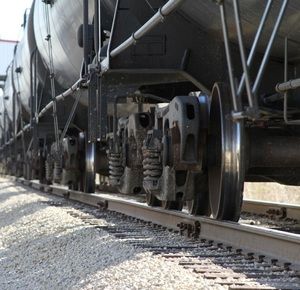Canadian railroads resume operations

August 27, 2024
BY Erin Voegele
Canadian National Railway and Canadian Pacific Kansas City, the country’s two largest rail carriers, on Aug. 26 resumed operations after the Canadian Industrial Relations Board took action over the weekend to end a work stoppage that began Aug. 22.
CN and CPKC have been engaged in a labor dispute with the Teamsters Canada Rail Conference that resulted in a lockout and strike that would have crippled rail fright transportation in many areas of North America.
Advertisement
CIRB on Aug. 24 issued an order imposing binding arbitration between the railroads and TCRC. The order also prevents any further labor stoppages from occurring during the arbitration process and extends the current collective agreement until new agreements are signed between the parties. TCRC is appealing CIRB’s order.
A report on the rail stoppage filed with the USDA Foreign Agricultural Service’s Global Agricultural Information Network on Aug. 22 indicates U.S. exports of biofuels, corn, soybeans and soybean products to Canada were expected to be among the hardest hit U.S. agricultural products and commodities. The report also noted that all cross-border trade in bulk commodities, consumer products, biofuel and feedstocks would be affected.
Advertisement
The report estimates that the U.S. biofuel exports to Canada were valued at $3.34 billion last year, with corn ethanol exports valued at $1.46 billion and exports of biodiesel and biodiesel blends of B30 or greater valued at $782.08 million. DDGS exports to Canada were valued at $106.45 million in 2023.
An estimated 73% of biofuel exports to Canada were transported via rail last year, including 88% of corn ethanol and 55% of biodiesel and biodiesel blends. According to the report, 36% of DDGS exported to Canada were also delivered via rail.
The Renewable Fuels Association, Growth Energy and U.S. Grains Council were among nearly three dozen U.S. agriculture and biofuel groups that sent a letter to Canadian Prime Minister Justin Trudeau ahead of the Aug. 22 lockout and strike urging him to take action to ensure continued Canadian rail operations.
Related Stories
More than 1.76 billion renewable identification numbers (RINs) were generated under the Renewable Fuel Standard in January, down from 1.91 billion generated during the same period of 2024, according to data released by the U.S. EPA on Feb. 20.
The U.S. EPA on Feb. 20 released updated small refinery exemption (SRE) data showing that 13 previously denied SRE petitions for Renewable Fuel Standard compliance years 2021 and 2022 are being reconsidered. No new SRE petitions were filed.
OMV Petrom has announced the start of construction for a sustainable aviation fuel (SAF) and renewable diesel (HVO) production unit at the Petrobrazi refinery in Romania. The new facility will have an annual capacity of 250,000 tons.
CVR pauses development of potential SAF projects pending regulatory, tax credit clarity
CVR Energy Inc. released fourth quarter financial results on Feb. 18, reporting reduced renewable diesel production. The company also said it is pausing development of SAF capacity pending clarity on government subsidies.
CARB on Feb. 18 announced that amendments to its LCFS program that were approved in November 2024 have been put on hold following the California Office of Administrative Law’s decision to disapprove the amendments due to clarity issues.
Upcoming Events










